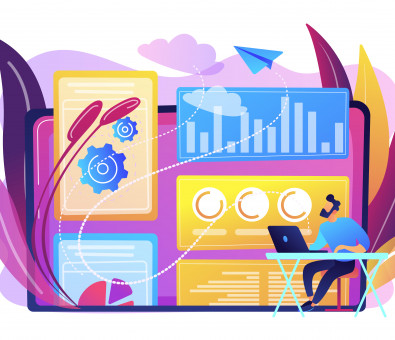Link Works at the ‘Tracing’ app, the digital epidemiological surveillance app.
Quito, Ecuador
April 24, 2020
After the arrival of the coronavirus pandemic, everyone changed their lifestyle, with the mindset of ensuring prevention and stopping its spread. Therefore, each country began to take certain types of measures and thus save many lives, based on social isolation: something that has managed to slow down the progress of the disease.
It is not known for sure when everything will return to normal. The scientific efforts that are carried out on a daily basis are looking into having the coronavirus vaccine ready within 12 or 18 months and this is a somewhat optimistic vision, according to the words of the World Alliance for Vaccines, who thinks it may take much longer.
Due to this, it’s important for technology to enter the scene and contribute from this field to society. In that order of ideas, Link has given itself the task of making a great contribution to combating the coronavirus and has made approaches to the creation of the digital 'Tracing' application, which is expected to be key to "recover normality" .
This new digital tool would be based on Bluetooth technology and will be imposed by the Government of Ecuador once normality and essential activities are restored. All of this to have control over each citizen since, in a nutshell, it is a system of digital epidemiological surveillance.
How will Link's ' Tracing ' work?
Through geolocation, the user who has the app will voluntarily allow, in a collaborative project, to follow up if they were in contact with an infected person or if they have entered an area where there were infections. Within this process, a donation from this initiative is being worked on with the support of the IDB, so that ' Tracing ' finally sees the light.
As mentioned above, it will work with Bluetooth technology, where road signs can be shared on a day-to-day basis. If the user is infected, they would send an alert to the people who were by their side and, best of all, respecting data protection protocols.
We are expecting that there will be a system of this type per country, although in Ecuador some Provincial Emergency Operations Committees, COE would like to make a similar app. However, they are basing their system on GPS: an error due to the lack of data privacy and because they do are not duplicating the 'Tracing' that tracing does.
Bluetooth Vs. GPS: Why is the first option better?
In several aspects, Bluetooth is better than GPS, mainly because it is non-invasive towards the user. Additionally, you cannot follow a person through this technology: simply by sending a signal, social contact is confirmed, knowing if you were close to someone, but also without knowing their location, thus protecting data, and having free users.
Additionally, it uses little battery and does not spend data. For people who don't have access to Bluetooth, another way is already being worked on so they can participate via text messaging.
The cooperation of the people will be key in the success of the application, since without Bluetooth turned on, there will be no monitoring, there will have to be a lot of awareness on the matter.



